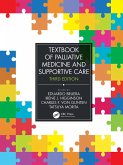This case-based book features a multidisciplinary, palliative-trained authorship, including neurologists, nephrologists, emergency physicians, surgeons, intensivists, and obstetricians. Divided into four parts, Palliative Skills for Frontline Clinicians outlines common clinical scenarios across settings and specialties to highlight unmet needs of patients with potentially terminal illnesses. Each case is broken down into the usual standard approach, and delves into detail regarding different palliative interventions that can be appropriate in those scenarios. These are meant to be practice changing; down to the actual words used to communicate with patients. In addition to the book's focus on the principles of palliative care and the "art" of treating the patient, approaches to communication with the patient's families for the best long-term outcomes are discussed.
Concise and pragmatic, Palliative Skills for Frontline Clinicians is meant to be practice changing. It provides readers with both a new conceptual framework, as well as actual words to communicate with patients and medication doses for symptom management. It is an invaluable resource for non-palliative trained clinicians who wish to strengthen their palliative care skills.
Dieser Download kann aus rechtlichen Gründen nur mit Rechnungsadresse in A, B, BG, CY, CZ, D, DK, EW, E, FIN, F, GR, HR, H, IRL, I, LT, L, LR, M, NL, PL, P, R, S, SLO, SK ausgeliefert werden.









